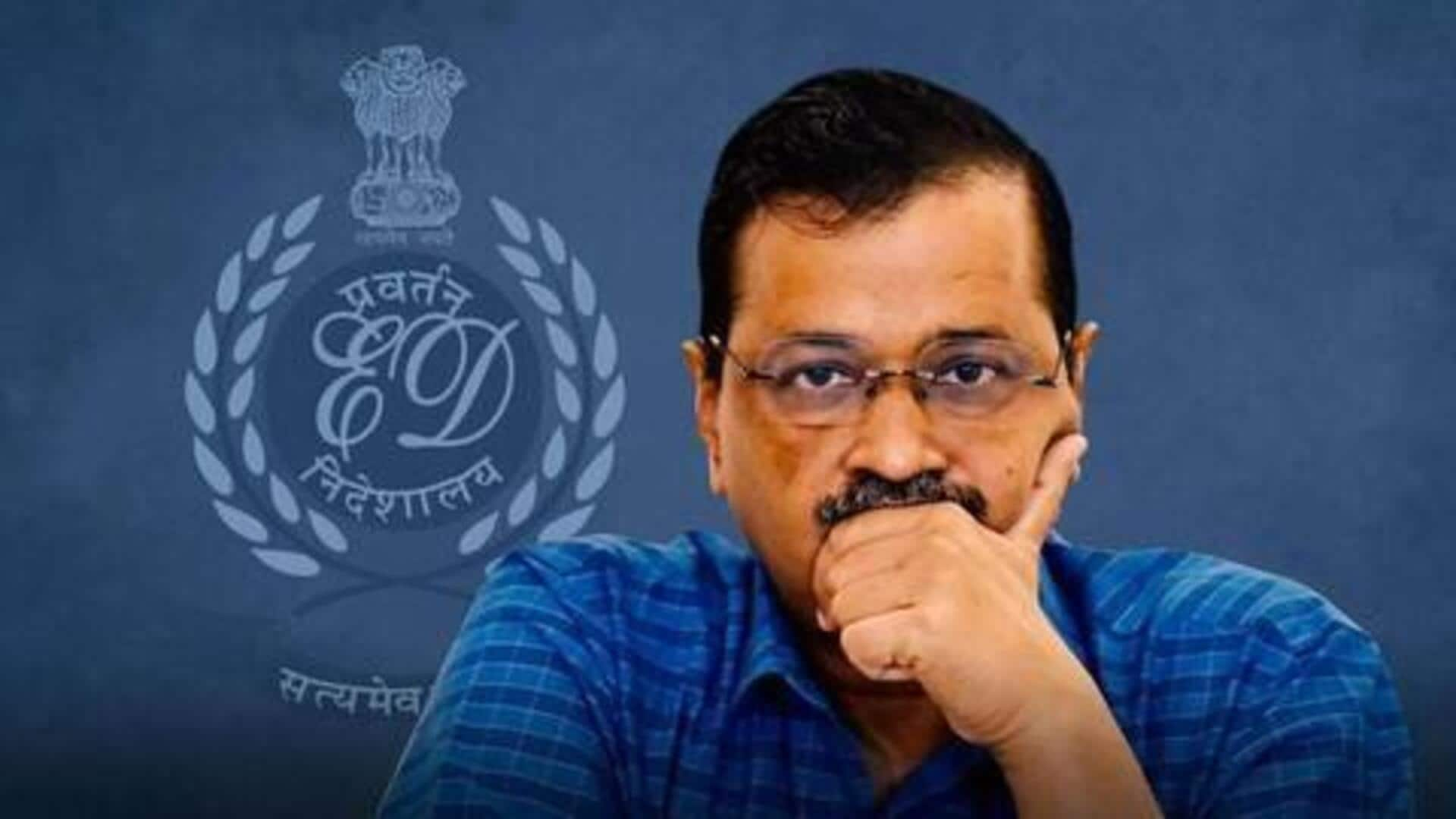
Ready for virtual questioning after March 12: Kejriwal tells ED
What's the story
Delhi Chief Minister Arvind Kejriwal on Monday responded to the Enforcement Directorate (ED)'s eighth summons linked to the probe into the 2021-22 excise policy case. Kejriwal labeled the summons as "illegal" but said he is willing to answer the probe agency's questions after March 12. The Delhi CM has sought a virtual hearing, PTI reported. The ED has said it wants to question Kejriwal over the alleged money laundering in the 2021-22 Delhi Excise Policy, which has since been scrapped.
Context
Why does this story matter?
Kejriwal has previously avoided the ED's summons seven times. The agency earlier filed a complaint against him for non-compliance, and a Delhi court has excused him from appearing in person until March 16. The Aam Aadmi Party (AAP)'s national convener participated in the court proceedings virtually, citing his involvement in the ongoing Budget Session of the Delhi Assembly as the reason for not appearing in person.
8 ED summonses
ED's 8th summons to Kejriwal issued last week
On February 27, the ED issued an eighth summons to Kejriwal in the case, asking him to join the investigation on Monday. The eighth summons came a day after the Delhi CM skipped the seventh ED summons. However, the AAP had said since the matter is in court, the agency should wait for the verdict, which will be pronounced after the March 16 hearing.
ED's chargesheet
ED's investigation into excise policy
The ED said it has to record Kejriwal's statements on issues like the formulation of the policy and allegations of bribery, among others. In a chargesheet, the ED claimed that the AAP used kickbacks worth Rs. 45 crore generated via the policy for its 2022 Goa Assembly poll campaign. To recall, Kejriwal has not formally been charged in the case. But two prominent AAP leaders, Manish Sisodia and Sanjay Singh, are currently in judicial custody as part of this case.
Background
What is the Delhi excise policy case?
In November 2021, the Delhi government implemented the revamped liquor excise policy for 2021-22. However, it decided to scrap it less than a year later amid extensive corruption allegations. Central investigation agencies alleged that wholesaler profit margins were artificially boosted to 12% from 5%. They also claimed that the regulation promoted cartelization and benefited those ineligible for liquor licenses for economic gain. The Kerjiwal-led Delhi administration, however, denied the charges and said the strategy would have increased revenue.